Explainer: What does the new ICJ order for Israel to halt Rafah offensive mean?
By Ivan Kesic
Judges at the International Court of Justice (ICJ), the Hague-based principal judicial organ of the United Nations, have ordered Israel to halt its aggression on the city of Rafah in southern Gaza, establish humanitarian corridors and allow the world body to investigate genocide.
The ruling follows a request from South Africa last week, which urged the World Court to call for an end to the Israeli offensive in the besieged Gaza Strip, particularly in Rafah, citing "immense risk" to the native Palestinian population.
South Africa filed a genocide case against the Israeli regime in December 2023, holding the regime responsible for actions in the blockaded coastal territory that are "genocidal in character" due to their intent to destroy a significant part of the Palestinian national, racial, and ethnic group.
The country described Froday’s ruling as groundbreaking.
ICJ orders are legally binding, but their enforcement will now be debated at the UN Security Council.
The United States, as a permanent member with veto power and a close ally of the Tel Aviv regime, has historically blocked resolutions condemning Israel's genocidal actions in Gaza or occupied territories.
The order issued on Friday was adopted by the panel of 15 international judges in a 13-2 vote, opposed only by judges from Uganda and the Israeli regime itself.
What does the ICJ order say?
By a vote of 13 to 2, the World Court reaffirmed its January 26 and March 28 rulings, stating that Israel must increase aid to Palestinians in Gaza, to be implemented immediately and effectively.
ICJ President Nawaf Salam noted that the provisional measures ordered in March did not fully address the current situation in Gaza, necessitating a new emergency order.
The Court, again by a 13 to 2 vote, determined that Israel had not taken adequate measures to protect civilian lives in the besieged territory. Consequently, Israel must facilitate the entry of any UN-backed commission of inquiry to investigate charges of genocide.
Given "the worsening conditions of life faced by civilians in the Rafah Governorate," Israel must "immediately halt its military offensive and any other actions in Rafah that could inflict conditions leading to the physical destruction of the Palestinian group."
The ruling also mandates that Israel "keep the Rafah crossing open for the unimpeded delivery of essential services and humanitarian aid."
Importantly, it came days after the chief prosecutor of the International Criminal Court Karim Khan said he had filed an application for arrest warrants against Israeli Premier Benjamin Netanyahu and military affairs minister Yoav Gallant.
Khan accused the regime leaders of crimes including extermination, using hunger as a weapon and deliberately attacking civilians during the past eight months of genocide in Gaza.
Protesters were seen gathering in The Hague as the International Court of Justice (ICJ) ordered Israel to halt its military operations in southern Gaza’s Rafah.
— Palestine Highlights (@PalHighlight) May 24, 2024
Follow Press TV on Telegram: https://t.co/fvRn3KuApw pic.twitter.com/Z3iQniYhOL
Reactions to the ICJ order
The Palestinian resistance movement Hamas praised the ICJ's order for Israel to cease its offensive in Rafah but criticized its exclusion of the rest of Gaza from the ruling.
"We had expected the ICJ to put an end to the aggression and genocide against our people throughout the entire Gaza Strip, not just in Rafah," read the statement, noting that the situation in other areas like Jabalia is equally dire.
The Gaza-based resistance movement also urged the international community and the United Nations to pressure Israel to comply immediately with the latest ICJ order.
"The international community and all relevant UN institutions, especially the Security Council, must not allow this fascist entity to continue its disregard for international laws and conventions," it stated.
The Palestinian Authority also welcomed the ICJ's decision, viewing it as an international consensus to end the ongoing war on Gaza.
Palestinian presidential spokesman Nabil Abu Rudeina said, "The Palestinian presidency welcomes the ICJ ruling to halt aggression on Rafah and urges a complete stop to the Israeli aggression on our people."
UN humanitarian chief Martin Griffiths called Friday’s ICJ ruling as “a moment of clarity”.
“At a time when the people of Gaza are staring down famine … it is more critical than ever to heed the calls made over the last seven months: Release the hostages. Agree on a ceasefire. End this nightmare,” he wrote in a post on X.
South Africa, which is spearheading the genocide case against Israel at the ICJ, also welcomed the order, while expressing grave concern over the situation in Gaza.
“We are gravely concerned that Israel has restricted necessary levels of aid from entering Gaza and has systematically targeted aid and aid infrastructure within Gaza,” South African President Cyril Ramaphosa was quoted as saying.
“This case is thus focused on the ordinary Palestinians in Gaza who are now facing their seventh month of suffering through collective punishment for something for which they have no individual responsibility.”
Spain on Saturday demanded that Israel comply with the ICJ order to immediately stop its bombardment and ground assault on Rafah, noting that the ruling was legally binding.
“The precautionary measures set out by the ICJ, including that Israel should cease its military offensive in Rafah, are compulsory. Israel must comply with them,” Spanish foreign minister José Manuel Albares wrote on X, formerly Twitter.
European Union foreign policy head Josep Borrell said the bloc must state its position on the ICJ’s ruling.
“We will have to choose between our support to international institutions of the rule of law or our support to Israel,” he said.
Israeli warplanes bomb Gaza after top UN court orders halt to invasion https://t.co/gfFUD4eWb3
— Press TV 🔻 (@PressTV) May 25, 2024
Reactions from Israel, US, UK
Soon after the much-anticipated order was issued, Israeli regime finance minister Bezalel Smotrich took to the social media platform X to denounce it.
“Those who demand that the State of Israel stop the war, demand that it decree itself to cease to exist. We will not agree to that,” he wrote, suggesting the aggression will continue despite the ruling.
Israeli opposition leader Yair Lapid called it a “moral collapse” and a “moral disaster.”
“The fact that the court in The Hague did not make the connection in its ruling between the cessation of fighting in Rafah and the return of the hostages and Israel’s right to defend itself against terrorism is a moral collapse and a moral disaster,” Lapid was quoted as saying.
Israeli regime’s war cabinet minister Benny Gantz said the regime will continue its campaign of slaughtering Palestinians despite the ruling of the top UN court, calling it a “necessary campaign.”
United States senator Lindsay Graham said the top UN court “can go to hell.”
“As far as I’m concerned, the ICJ can go to hell. It is long past time to stand up to these so-called international justice organizations associated with the UN. Their anti-Israel bias is overwhelming,” he said, showing utter disdain for the ICJ
“The ICJ’s ruling that Israel should stop operations that are necessary to destroy four battalions of Hamas killers and terrorists – who use Palestinians as human shields – is ridiculous.”
UK government also criticized the ruling, saying it would strengthen the Hamas resistance movement.
“The reason there isn’t a pause in the fighting is because Hamas turned down a very generous hostage deal from Israel. The intervention of these courts – including the ICJ today – will strengthen the view of Hamas that they can hold on to hostages and stay in Gaza,” a UK foreign ministry spokesperson said.
✍️ Conversation - Libya’s intervention in ICJ genocide case to prompt others to isolate Israel: @AbdiwahabSheik7 https://t.co/k8qCsPV9a3 pic.twitter.com/UwBqddeqoK
— Press TV 🔻 (@PressTV) May 17, 2024
Current situation in Rafah
Earlier this month, Israel launched a ground invasion against the southern city of Rafah despite international warnings of a humanitarian catastrophe.
Rafah now shelters almost two million Palestinians who have fled from other areas of Gaza due to the Israeli genocidal bombings that have spawned the modern era’s worst humanitarian crisis.
Situated at Gaza's southern edge on the border with Egypt, Rafah is a critical route for humanitarian aid. International aid organizations say the Israeli aggression on the city has cut the supply of aid, exacerbating the risk of famine.
UN relief chief Martin Griffiths stated that the assault on Rafah "has displaced more than 800,000 people, who are now in areas without adequate shelter, latrines, and clean water."
He emphasized that the global demand for an immediate halt to the offensive has become too loud to ignore.
Nawaf Salam, the ICJ president, expressed skepticism over Israel's claims that it provides safety and humanitarian access to the displaced, noting the lack of evidence supporting such assertions.
International reporters on the ground indicate that many people in Gaza are unaware of the ICJ ruling due to the lack of internet connectivity, with their primary concern being basic survival.
Experts slam ‘scientifically reckless’ US withdrawal from WHO
Recent US military actions signal return to ‘predatory colonialism’: UN rapporteur
‘Confused clowns’: Iran FM blasts Zelensky over call for aggression on Iran
Trump disinvites Canada from Gaza board after PM Carney’s critique of US
Iranian students rally to condemn Germany's backing for rioters
Enemies of Ummah seek to expand war, Pezeshkian tells Erdogan
VIDEO | Press TV's news headlines
VIDEO | New wave of Israeli strikes on Lebanon as US suspends ceasefire mechanism


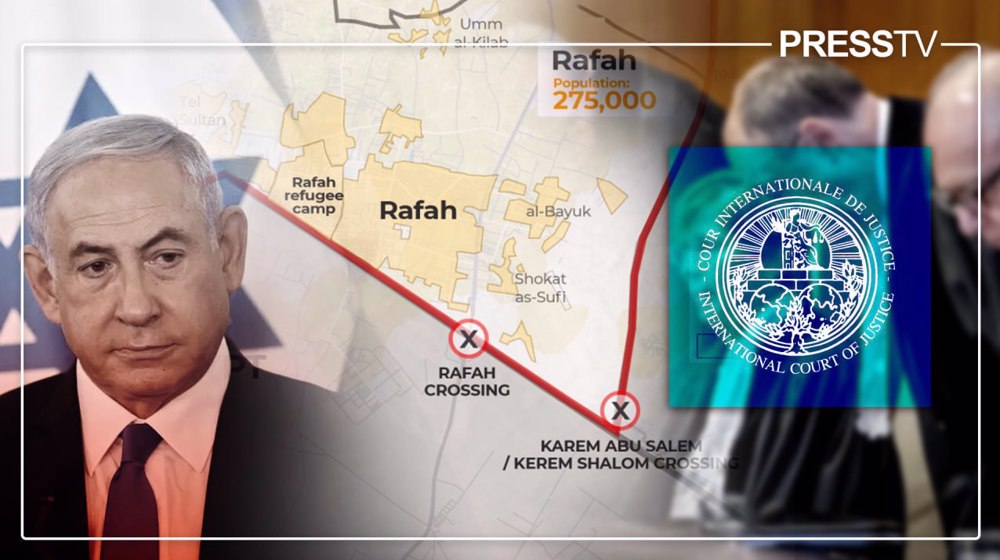
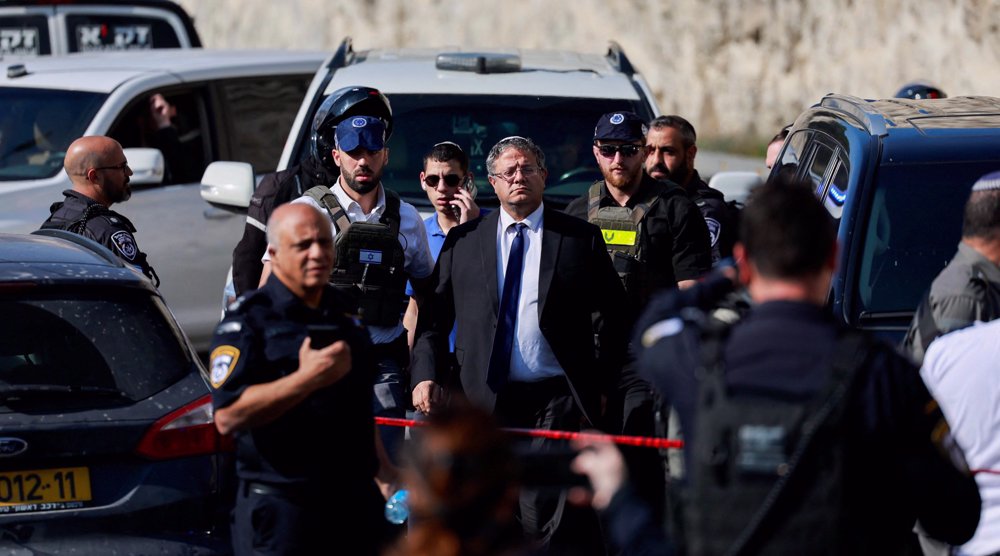

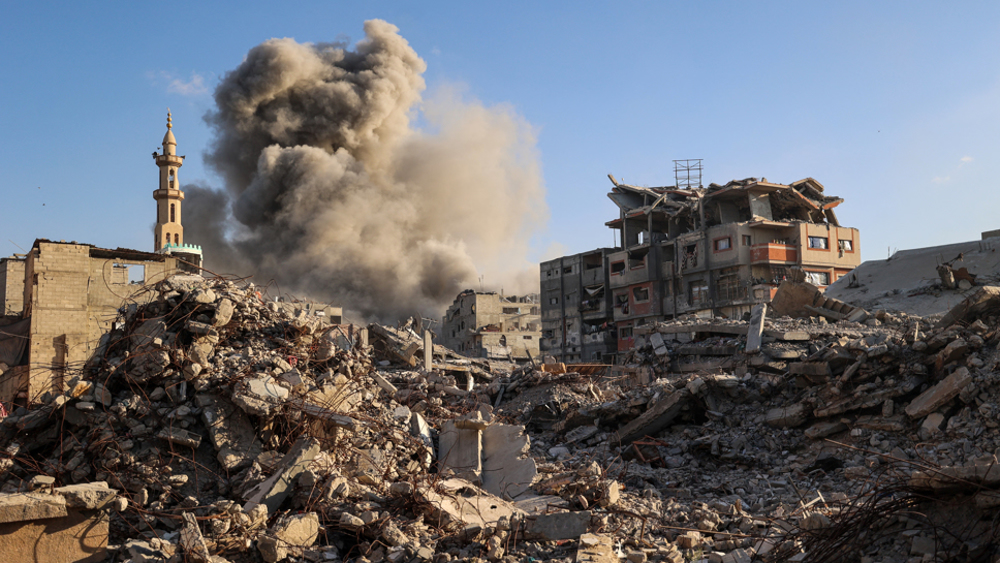



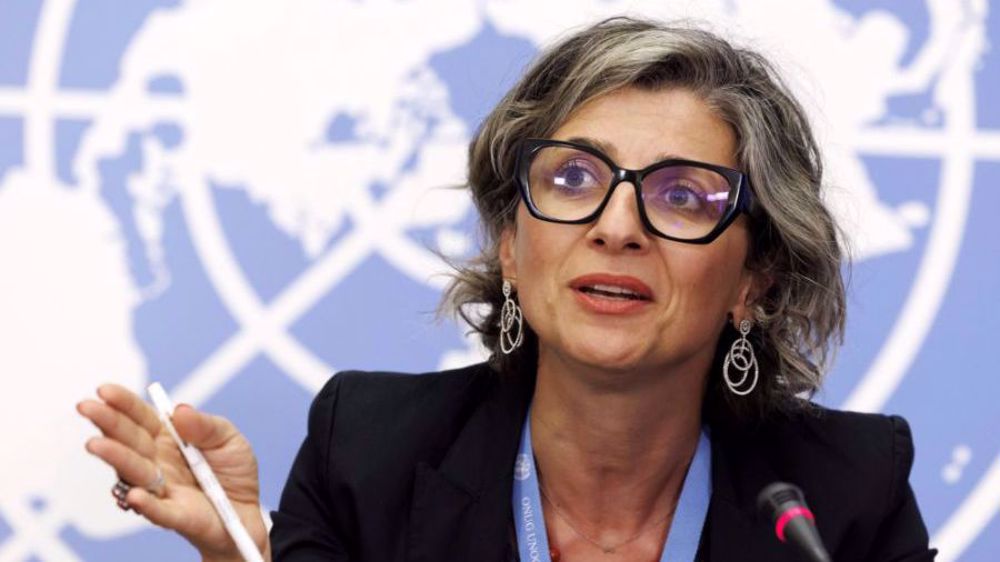
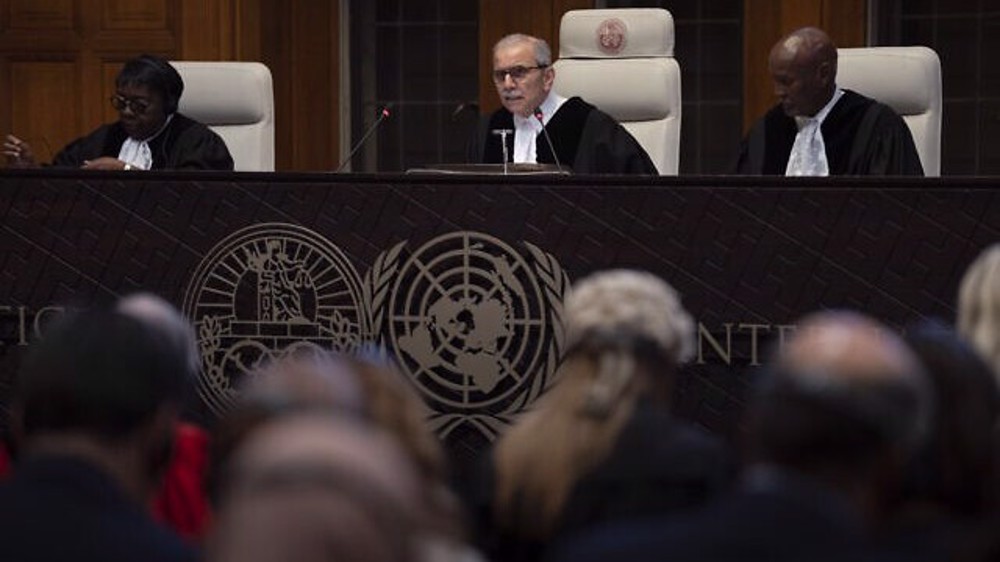
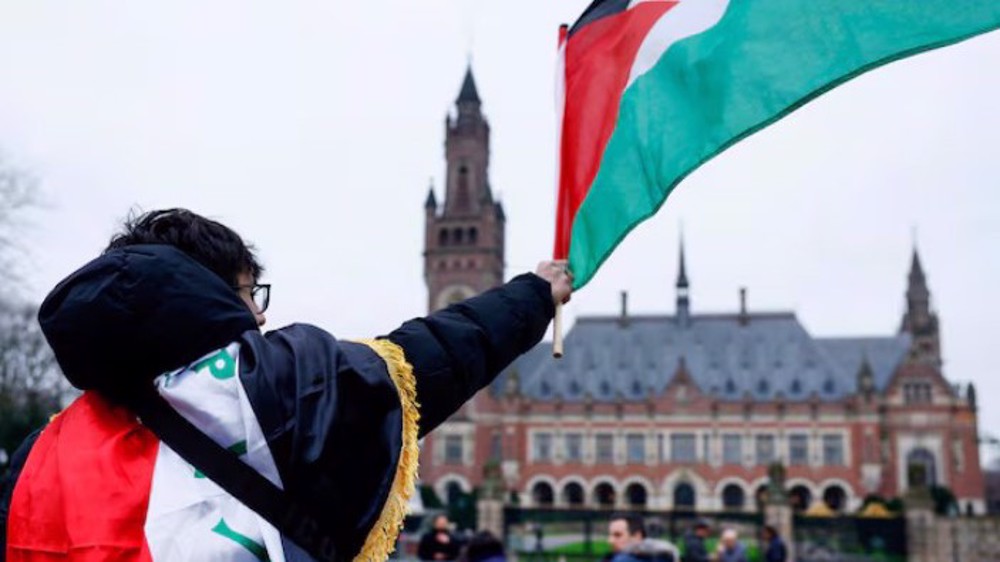
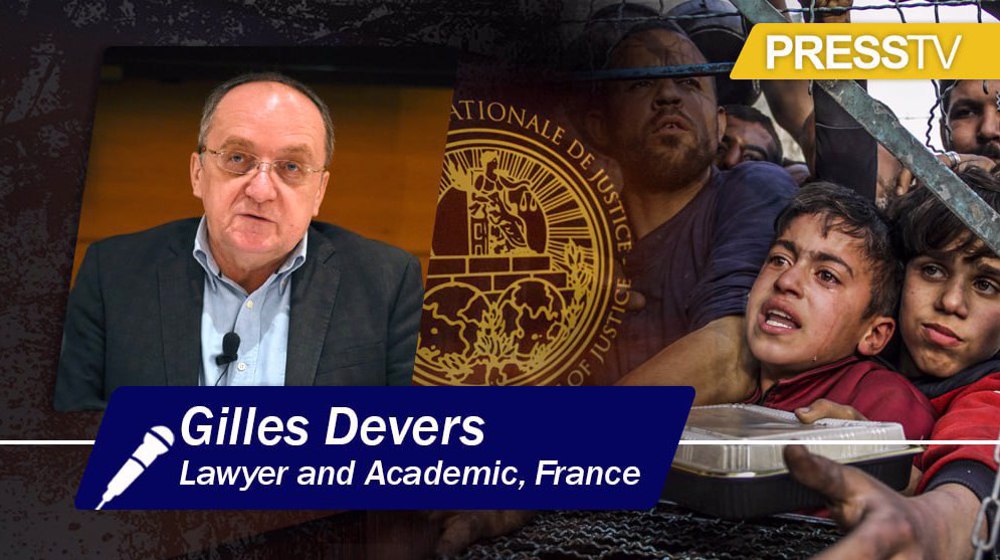
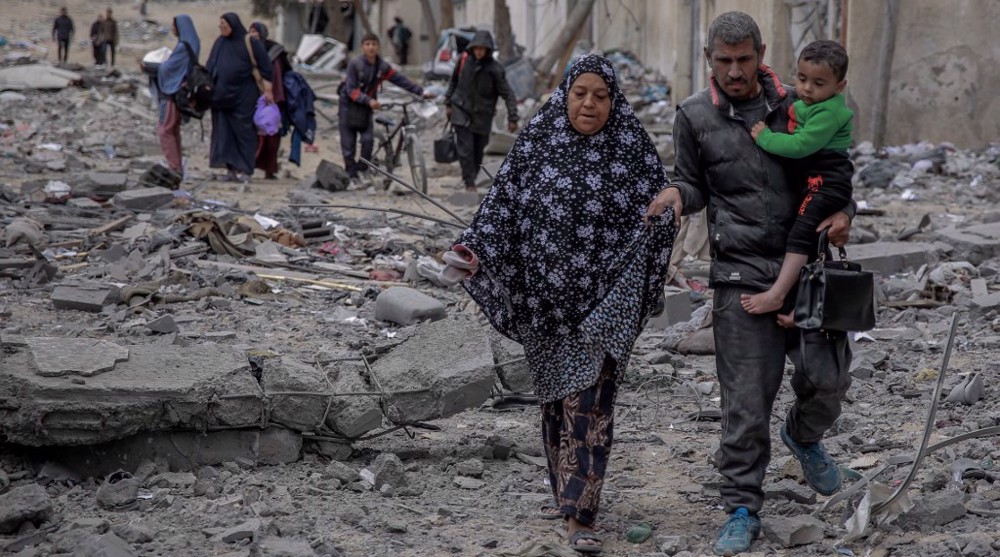

 This makes it easy to access the Press TV website
This makes it easy to access the Press TV website